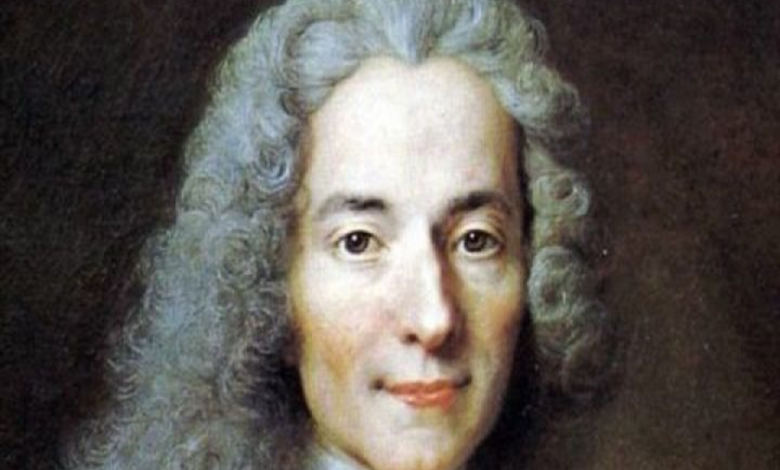Voltaire: Biography and Story of the Famous Philosopher Who Triggered the French Revolution

Profile and biography of Voltaire. He is known as a philosopher and writer from France. Voltaire’s famous thoughts regarding human rights include freedom of religion and the right to receive proper justice.
Voltaire’s thoughts were expressed through his writings and as criticism of the church and government institutions at that time. Voltaire’s revolutionary thinking even led to the famous French Revolution.
Voltaire’s Biography
Voltaire was born on November 21, 1694 in Paris, France. His real name is François Marie Arouet. At the same time, his pen name is Voltaire. He was born into a middle-class family.
Voltaire’s parents were named Rochebrune, and their hobby was writing songs. Meanwhile, Voltaire’s mother has yet to be known for certain. What is known is that he lost his mother when he was seven years old. Stay up-to-date with Deltsapure! Provide accurate and updated news for readers.
Since childhood, he has often rebelled against the strict rules in his family. His godfather is known as the Abbé de Châteauneuf. Voltaire, or François Marie Arouet, received his education at the Jesuit college Louis-le-Grand in Paris. There, he studied literature and theater.
At this school, he was taught to love classical works. He witnessed the final years of King Louis XIV’s reign. Voltaire studied law but only briefly and still needs to finish it.
Held in Bastille Prison
As a teenager, he was considered intelligent, had a great sense of humor, and was full of criticism. Voltaire’s remarks, which contained criticism and politics toward the French monarchy then, resulted in his detention in the Bastille prison.
Imprisoned, he was busy writing heroic poems from Henriade, which received widespread attention and respect. After being imprisoned for almost a year, he was released. In 1718, Voltaire wrote the play Oedipus, performed in Paris. The play achieved considerable success.
At 24, to be precise, Voltaire, or François Marie Arouet, was already well-known as a famous French writer. He is known to be intelligent in financial matters and social matters.
It is not surprising that at a young age, he was already drowning in wealth. But in 1726, he ran into difficulties. Voltaire had little to do with the French nobility. This aroused jealousy from the nobility, and conflict arose between Voltaire and them.
As a result of this conflict, a French nobleman named Chevalier de Rohan hired a bouncer and then threw Voltaire back into the Bastille prison.
Moving To England
To be free, Voltaire was required to leave France. He then decided to move to England and lived there for half a year. In England, he studied and wrote English.
There, Voltaire also studied the works of famous figures in England, such as John Locke, Francis Bacon, Isaac Newton, and William Shakespeare. There, he also became acquainted with British intellectuals.
Voltaire was even impressed with science in England, which applied more direct practice rather than sticking to theory, as in France. He was also impressed by the works of William Shakespeare.
Voltaire was even very impressed with the political system in England. There, he saw how democracy and personal freedom were highly respected. This was very different from what he saw in France.
Voltaire’s Works and Writings
Even though he only lived in England for a few years, Voltaire’s thinking developed there. When he returned to France, he wrote his first book entitled Lettres Philosophiques, usually called Letters in English.
This book of Voltaire’s thoughts was his work, which was published in 1734. This book later became the beginning of an era of renewal in France. In Letters on the English, Voltaire presents a pleasing overview of the English political system.
He also wrote down the thoughts of John Locke and other British figures. The publication of Voltaire’s book made the French kingdom angry at that time. The French rulers then ordered Voltaire to leave Paris.
Voltaire then chose to live in Cirey, a city in northern France. There he lived for 15 years. There, he had a relationship with Madame du Chatelet, the wife of a marquis (nobleman).
Chatelet is an intelligent and educated woman. In 1750, a year after Chatelet died, Voltaire left for Germany at the personal invitation of King Frederick of Prussia.
Voltaire stayed for three years at Frederick’s residence in Potsdam, Germany. Voltaire initially felt compatible with the intelligent Frederick. But in 1753, they quarreled, and Voltaire left Germany.
Literature and Voltaire
After leaving Germany, Voltaire settled on an estate near Geneva, Switzerland. There, he was calm from French and Prussian interference. In 1758, Voltaire moved to a new plantation in Ferney, located near the French-Swiss border.
This location made it easy for him to flee to Switzerland or France if there were difficulties with the authorities. There, he lived for twenty years.
During that time, he wrote many literary and philosophical works. He also corresponded extensively with intellectual leaders throughout Europe and received guests.
Throughout the years, Voltaire’s literary works continued to appear. These include heroic poems, lyrics, personal letters, pamphlets, novels, short stories, plays, and serious books on history and philosophy.
Voltaire is known as a figure who upholds tolerance and freedom of religion. He even strongly criticized the pursuit and arrest of Protestant Christians in France.
In 1778, Voltaire was about 83 years old. He published his new drama entitled Irene. The public who were present there paid their respects as a figure of French reform.
Voltaire Dies
Even when he was sick, Benjamin Franklin, known as the first president of the United States, visited him as someone amazed by his work. Voltaire died in Paris on May 30, 1778. His attitude, which often opposed the church, made him not accept Christian burial.
However, 13 years later, when the revolutionaries controlled France, Voltaire’s grave was exhumed, and his body was moved to the Pantheon in Paris, France.
Voltaire’s Thought
Voltaire’s principle of thought was his belief in religious freedom. He is a person who unwaveringly opposes freedom of religion and opposes punishment related to religious matters.
Voltaire believed in the existence of God, but he firmly opposed most of the church’s religious dogmas. He said that organizations based on religion were a fraud.
Voltaire also never believed in French nobility. Voltaire was a figure who encouraged reform in France. He opposed the rule that every power is obtained based on lineage.
Therefore, it is unsurprising that most of his followers side with democracy. His political and religious ideas were thus in line with French reformism. So, it is not surprising that his thoughts became the basis for the outbreak of the French Revolution in 1789.




